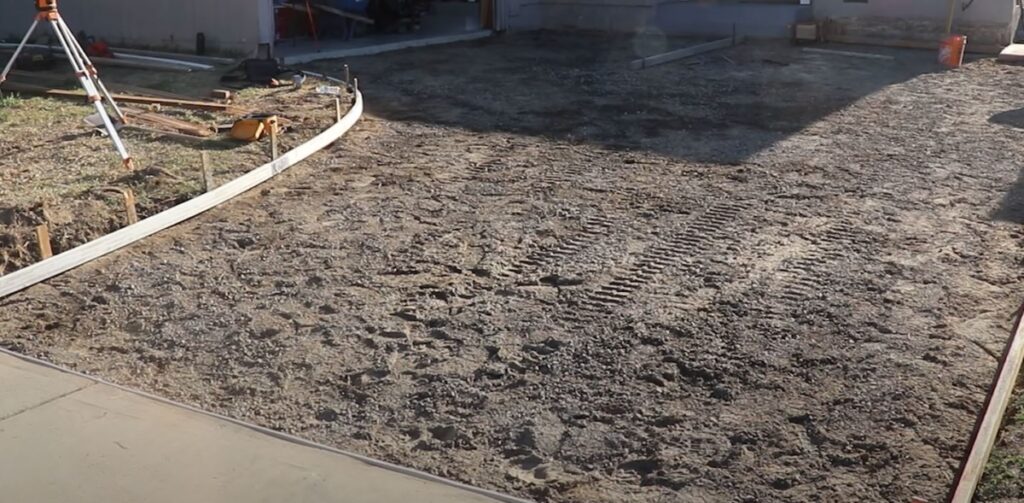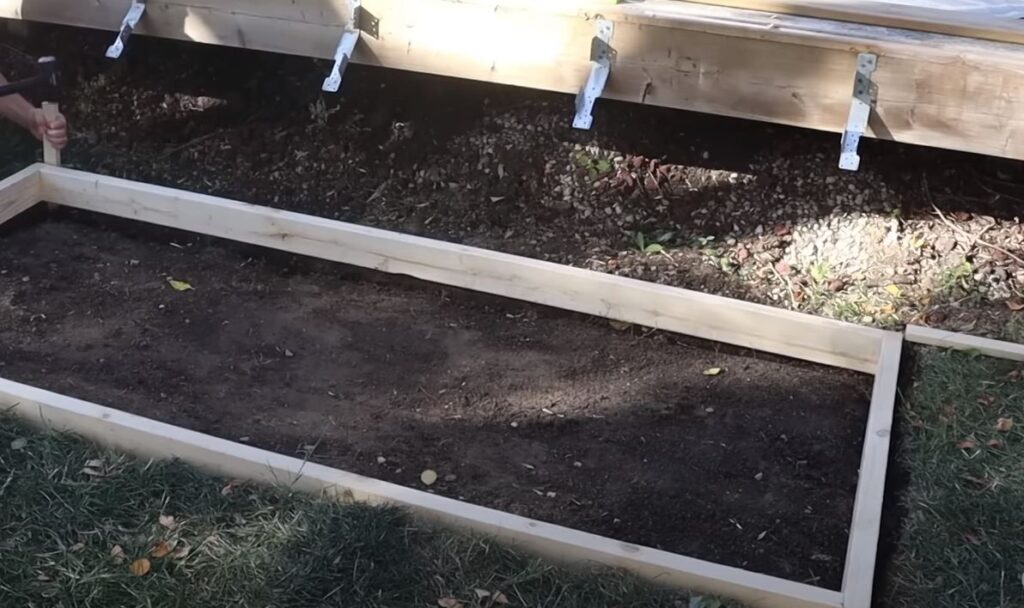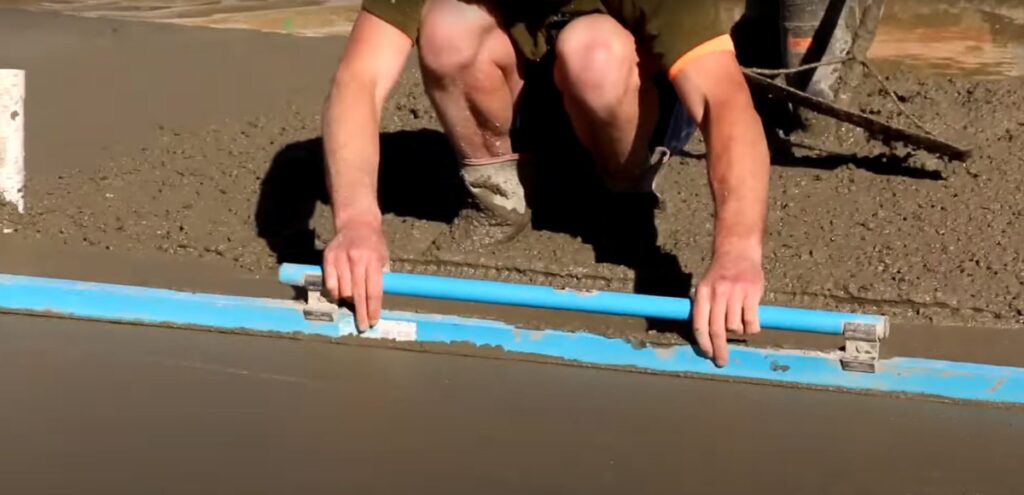In Auckland, the unique combination of climate, weather, and seismic activity plays a pivotal role in driveway design and construction. This article delves into these specific challenges, focusing on concrete driveway solutions, while emphasizing health and safety aspects and the risks associated with different concreting methods.
Concrete Mixing and Placement in Auckland’s Climate
Auckland’s climate demands specific strategies in concrete construction, particularly to prevent slab cracking. Uniform concrete mixing and placement are critical to avoid weak spots and stress points. Working with skilled contractors can greatly enhance the quality of the work. In addition, the high humidity in Auckland can affect concrete curing, requiring protective measures, and temperature fluctuations must be monitored to prevent cracks.
Managing Auckland’s Rainfall and Weather
The unpredictable weather, including heavy rains and the possibility of floods, necessitates effective rainfall management and drainage solutions to protect the concrete integrity.
Seismic Considerations
Given Auckland’s seismic activity, using earthquake-resistant materials and thorough seismic analysis in design is essential. Regular inspections ensure the ongoing structural soundness of the driveways.
Health and Safety in Concrete Driveway Construction
The construction industry in Auckland places a strong emphasis on health and safety. Proper protective gear, like gloves and masks, is essential when handling materials like steel reinforcements and fibres. Additionally, reinforced driveways require careful curing, and understanding load distribution is crucial, especially in areas with heavy vehicle traffic.
Risks and Reinforcement Needs in Auckland Driveways
The decision to reinforce a driveway is complex and based on soil mechanics, materials science, and stress distributions. Auckland’s diverse geology, ranging from the sandy soils of Mission Bay to the clay-rich soils in Mount Eden, affects soil movement and settling, which can create tension within the driveway slab. Reinforcements distribute the load evenly, provide tensile strength, mitigate cracking risks, and prolong driveway life.
Auckland-Specific Regulations
While the Auckland Council doesn’t mandate reinforcements for driveways, they stress the importance of managing stormwater, crucial in flood-prone areas. Correctly designed reinforced driveways can channel water effectively, reducing the risk of pooling and structural damage.
Conclusion
In summary, constructing concrete driveways in Auckland requires a comprehensive approach, considering the unique climatic, weather, and seismic conditions of the region. Safety, correct material handling, and understanding the local geology and regulations are imperative. By focusing on these aspects, homeowners can ensure the longevity and integrity of their driveways in Auckland’s dynamic environment.
Key Takeaways for Driveway Design in Auckland
Seismic and Weather Considerations in Auckland Auckland’s seismic activity and unique weather patterns require special considerations in driveway design. Earthquake-resistant materials, consistent concrete mixing, and effective weather and moisture management are essential.
Health and Safety in Construction Safety is paramount in the construction industry in Auckland. Use of protective gear and proper handling of materials are crucial, especially when dealing with sharp steel reinforcements and hazardous fibres.
Geology and Reinforcement of Driveways The diverse geology of Auckland necessitates tailored approaches to driveway reinforcement to manage soil movement, load distribution, and prolong driveway life.
Local Regulations and Stormwater Management Auckland Council emphasizes proper stormwater management in driveway construction, crucial for preventing structural damage in flood-prone areas.
These takeaways highlight the importance of considering Auckland’s unique environmental and geological factors in driveway design and construction, ensuring both durability and safety.
FAQs on Driveway Design in Auckland
How Does Auckland’s Weather Affect Concrete Driveway Construction? Auckland’s humidity and temperature fluctuations impact concrete curing, requiring specific measures to prevent cracking and structural issues.
Why Are Seismic Considerations Important in Auckland’s Driveway Design? Due to Auckland’s seismic activity, using earthquake-resistant materials and thorough seismic analysis is crucial for structural integrity.
What Safety Measures Are Essential in Concrete Driveway Construction? Using protective gear, such as gloves and masks, and safe handling of materials like steel reinforcements are vital for worker safety.
How Does Auckland’s Geology Influence Driveway Reinforcement? The region’s diverse soils, from sandy to clay-rich, affect soil movement and settling, necessitating specific reinforcement strategies to distribute loads and reduce tension.
What Role Does Stormwater Management Play in Driveway Design? Proper stormwater management is key to preventing pooling and structural damage, especially in flood-prone areas.
Is Reinforcement Mandatory for All Driveways in Auckland? While not mandated by Auckland Council, reinforcement is recommended for longevity and stability, particularly in areas with diverse soil types and heavy rainfall.
Can Driveway Construction Impact Environmental Safety? Yes, improper construction practices can lead to environmental hazards, including ineffective stormwater management and material runoff.
What Factors Should Be Considered in Choosing Driveway Materials? Material choice should be based on local weather, seismic risks, soil type, and environmental regulations.
How Often Should Driveways in Auckland Be Inspected? Regular inspections are recommended to assess wear and tear, especially in areas prone to seismic activity or extreme weather conditions.
Are There Specific Regulations for Driveway Construction in Auckland? While specific regulations may vary, Auckland Council emphasizes stormwater management and compliance with safety and environmental standards.




